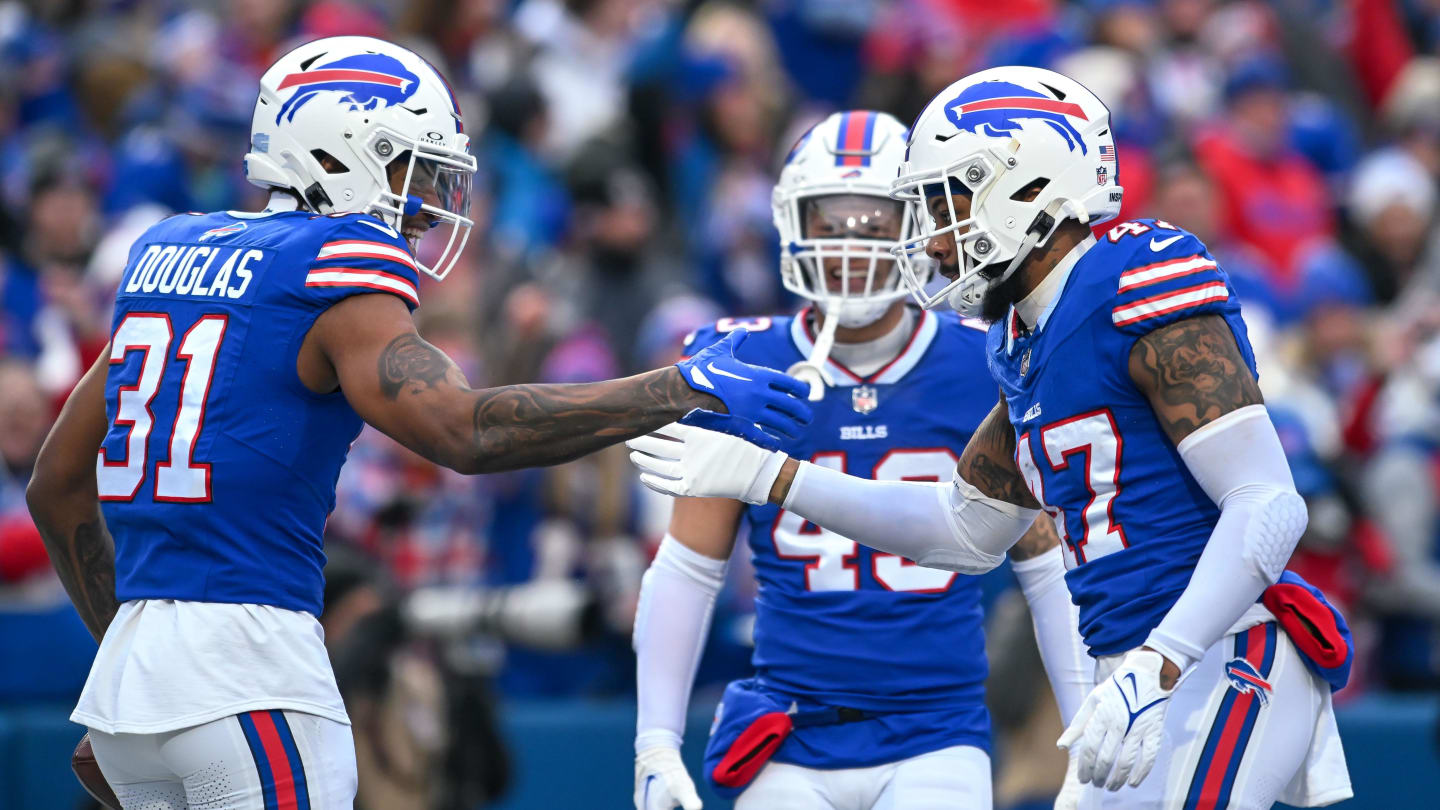


There are three certainties in life—death, taxes, and the Buffalo Bills deploying a stout secondary.
It’s been the norm in Western New York since Sean McDermott took over as the team’s head coach in the 2017 NFL season. The sideline boss, himself a former safety who rose through the coaching ranks as a defensive backs specialist, coached a hodgepodge group of Micah Hyde, Jordan Poyer, E.J. Gaines, and rookie Tre’Davious White to elite production in his debut season, with Buffalo’s safety tandem, in particular, establishing itself as one of the league’s best.
Hyde, Poyer, and White would serve as the foundation of the secondary throughout the better part of the next decade, with the defense finishing as a top-six unit against the pass in four of the last six seasons. Prolonged continuity across any positional group—especially the secondary—is rare in the NFL, and reality caught up to the Bills this offseason; the team parted ways with its stalwart defensive backs, all of whom have missed significant time with injuries throughout the past handful of seasons.
Related: Bills DC says day-two rookie defenders are ‘adapting well’ to NFL
There are no overwhelming causes for concern when it comes to Buffalo’s defensive backfield in the 2024 season, however; thanks to McDermott’s ability to ‘coach up’ defensive backs and general manager Brandon Beane’s knack for finding overlooked secondary talent, the unit figures to be stingy yet again this fall. Former day-three draft pick Christian Benford and 2023 trade deadline acquisition Rasul Douglas project to man the cornerback spots after doing so admirably down the stretch of the 2023 campaign, while Taylor Rapp, who was with the team last season, figures to ascend to one of two starting safety roles alongside either Mike Edwards or rookie Cole Bishop.
There are question marks from a 30,000-foot view, but they’re largely overblown; Benford and Douglas are a proven, if not underrated duo, while the track record of McDermott alone should perhaps be enough to give the Western New York faithful confidence in Buffalo’s safety group. This sentiment has been reflected in Pro Football Focus’ recent article ranking the NFL’s secondaries from best to worst entering the new year; writer John Kosko slots the Bills in at No. 3, particularly praising the team’s cornerback group.
“The Bills quietly return three cornerbacks who produced coverage grades north of 81.0 last year: Christian Benford (83.3), Rasul Douglas (81.8) and Taron Johnson (81.0),” Kosko wrote. “With the release of longtime starter Jordan Poyer and the uncertainty surrounding Micah Hyde‘s playing future, the Bills will rely on Dee Delaney and Taylor Rapp at the safety position, but both players have proven effective.”
Related: Underrated Bills WR was among NFL’s best in this important statistic in 2023 season
Johnson is a player who goes oft-overlooked in secondary conversations due to the unique role he plays within Buffalo’s defense, but his importance to the unit cannot be overlooked; the elite nickel defender allows the defense to function as intended, his prowess in coverage and willingness against the run making him a quasi-linebacker whom the Bills rarely take off the field. Benford notched two picks and 10 pass deflections last year while Douglas intercepted four passes after coming over from Green Bay; with Benford ascending in each of his two professional seasons and Douglas entering a contract year, it’s fair to expect their production to increase even further in the upcoming campaign.
There are, again, a few question marks at safety, but the team has immense confidence in the returning Rapp; McDermott has seemingly already penciled him into a starting role, recently telling reporters that the 26-year-old has “asserted himself from a leadership standpoint.” We’ll push back on the idea that Dee Delaney is in line to start alongside Rapp, as the offseason depth signing, at this juncture, is fifth in line behind Edwards, Bishop, Cam Lewis, and Damar Hamlin; regardless, the Bills have options, with Bishop, in particular, factoring in as part of their long-term future.
Buffalo’s placement on the list is fair and supports the argument that chatter of the unit’s demise in the face of offseason turnover is perhaps overblown. Hyde and Poyer, both 33, have each missed time over the past two seasons with respective ailments, while White has missed the vast majority of the past three campaigns due to major leg injuries—their departures, while significant, may not be the death knell that some are anticipating. Buffalo has sound, proven succession plans in place, and with McDermott still overseeing the unit, there’s little reason to expect a considerable drop-off in quality.
— Enjoy free coverage of the Bills from Buffalo Bills on SI —